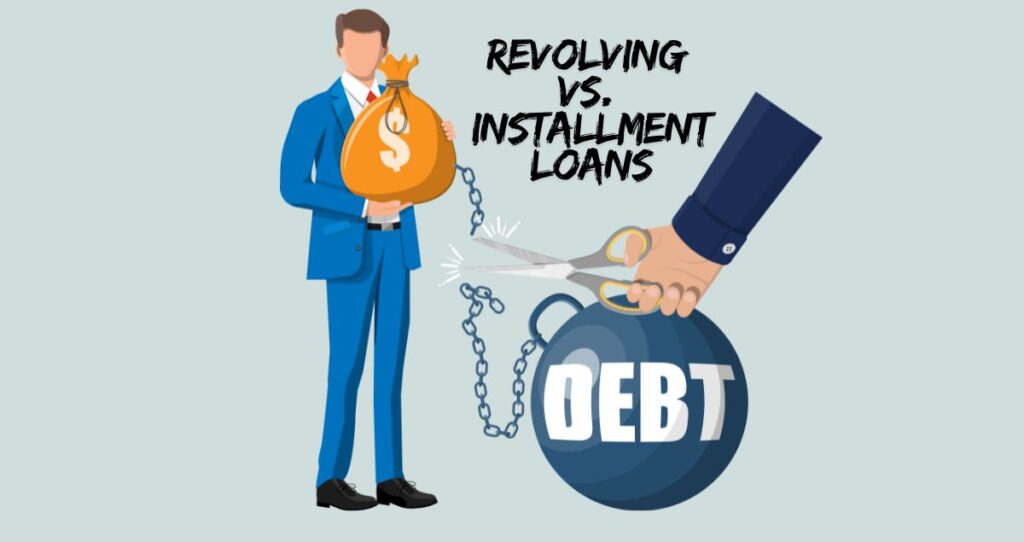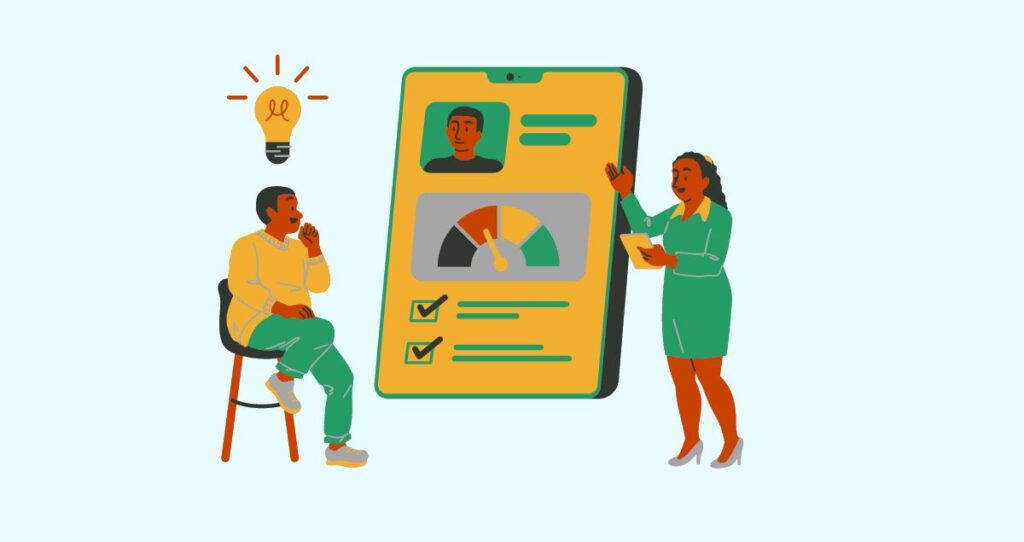Lending money to a friend may seem like an act of kindness, but it comes with risks and potential pitfalls. When you lend money to a friend, there are no guarantees of repayment, no deadlines to hold them accountable, and it is difficult to enforce a repayment plan. Unlike a traditional lender, you may find yourself in a difficult position if your friend fails to repay you as promised. This can lead to disappointment, and resentment, and ultimately damage the trust that forms the foundation of any friendship.
In this article, I will walk you through the reasons why lending money to a friend or a family member can lead to regret due to repayment challenges and potential impact on your finances, and friendship. If your friend is not financially responsible, give them a one-time financial support instead of loaning them money. To avoid being a human ATM, teach your friends and family members how to take control of their finances through budgeting, saving, and investing.
Without further ado, here are reasons why loaning money to a friend is not a good idea.
1. Lending money to a friend/family puts your friendship in jeopardy
Have you ever felt obligated to lend money to a friend who is in need of money? While it’s understandable to want to help a friend in need, the long-term effects on your finances and your friendship can be negative. One of the reasons you should not lend money to a friend is that it puts your friendship in jeopardy.
When your friend owes you money, it usually changes the direction of your friendship. Money has a way of getting between friendships, which easily creates an imbalance that is hard to rectify. Suddenly, your interactions may become tainted, causing awkwardness and discomfort. Your friend might feel guilty about owing you money which can easily prevent you from hanging out very often.
If you have a friend who is always asking for money, try to help them manage their finances instead. Just like the saying, “If you give a man a fish, you feed him for a day. If you teach a man to fish, you feed him for a lifetime.” The same goes for money coaching and advice. Instead of loaning money to a friend all the time and risking your friendship, teach your friends how to improve their money habits. Show your friends and family members how to manage money, create a budget, save, and invest. This will allow them to take control of their finances and avoid borrowing money from you.
2. You risk not getting your money back
When it comes to lending money to a friend, one of the biggest challenges you will face is the risk of not getting paid back. This is because repaying a loan usually becomes a low priority for your friend, especially when compared to their immediate needs or other financial obligations. This discrepancy in priorities can strain the trust and bond you share, making it even more difficult to enforce a repayment plan and potentially putting your friendship and finances at risk. This is one of the biggest reasons why you should never lend money to your friends unless they are in critical condition.
The fear of losing the friendship prevents you from enforcing a repayment plan. Some people don’t even write a contract which makes things even harder when you are trying to collect your money back. All you can do is rely on the trust you have in your friend and hope they will pay you back. Even if someone is your bestie, however, the chances of getting your money back might be slim.
Instead of loaning money to a friend, give them a one-time financial support and tell them they don’t have to pay you back. This way they won’t feel obligated to pay you back and you will not feel bad about it.
3. It is hard to force a repayment plan
Lending money to a friend or family member is risky because you cannot force them to pay you back. Well, you can actually force your friends to pay back the loan. But, if you do, you might lose the friendship. It is always a struggle to find the balance between getting paid and keeping the friendship alive. For most people, it becomes difficult to ask for their money back due to fear of losing friendships.
Trying to hold your friend accountable when he/she is unable or unwilling to pay can lead to uncomfortable conversations and potential resentment. It may also put you in the position of having to constantly remind or hound them about the money which further strains your relationship. Considering the emotional toll it can take and the potential damage to your friendship, it might not be a good idea to loan money to a friend or a family member.
4. You are not a priority when it comes to repayment
If your friend owes you money and the bank, your friend will pay the bank first. Well, it makes sense. The bank can evict them but you cannot evict them. That is how your friends feel when they owe you money.
If they have to choose between paying you back and taking care of bills, they will pay their bills first. Your friends can even spend all the money they make on things they don’t need knowing that they owe you money. This is because lending your friends money makes you the least priority when it comes to paying you back. This is why loaning money to a friend is not a good idea. Your friends will think about paying you back when all their businesses are taken care of.
By ignoring your payments, it increases the risk of losing the money you loaned them. Eventually, they become comfortable not paying you back. Since you can’t enforce a repayment plan, you eventually give up and accept the loss to keep the friendship alive.
Again, this is not the case for everyone. There are friends who will put your payments first and make sure that you get your money back before you even know about it. But, these friends are special and rare. That is why you need to be careful about the kind of friends you lend money to. Only lend money to a friend who is responsible enough to pay you back. Those friends and family members you know will not pay you back, don’t lend them money. If you can afford it, give them a one-time money offer and tell them to not pay you back.
5. You could easily turn into an ATM
Lending money to friends and family members is often difficult because they keep coming back. The moment your friends know that you have money, they will come to you for more loans and free money. Any time they need money, they think about you. That is how it works and some people end up getting poor because their friends and family members keep borrowing more. Instead of paying you back, they borrow more and give you empty promises about repayment dates.
In other words, loaning money to a family member or a friend can easily turn you into an ATM which is shown by a never-ending cycle of money requests. Once you’ve established a pattern of being the go-to source for financial help, it can be challenging to break free from that position. Your friend may come to rely on you as their personal ATM, always turning to you when they find themselves in a tight spot.
6. You might need the money right after lending money to a friend
When you lend money to a friend it is not always the money you don’t need. Sometimes it is your long-term saving goals money that you end up giving your friends. For example, if you are saving for a car purchase, you could easily lend the money to your friends until you actually buy the car. This strategy comes with the risk of not having the money back when you need it. This is essentially one of the biggest reasons you should never loan money to your friends. There is no guarantee that your friend will have paid you back by the time you need the money.
Despite your best intentions, you can never predict what the future holds. Life is full of unexpected twists and turns, and you may find yourself in a situation where you need the money you lent to your friend. It could be a medical emergency, a sudden job loss, or any other unforeseen circumstance that leaves you in a financial bind. If you’ve already given your friend a significant amount of money, it could be detrimental to your own well-being to not have those funds available when you need them the most. By lending money to a friend, you are essentially risking your own financial stability in the process.
7. It’s hard to say no to a friend
One of the hardest questions that will come from your friends is, “Can you lend me money”? It’s hard to say no to a friend, especially when they’re in need of money and you have the means to help. As humans, we are inclined to help those close to us, and the bond of friendship can make it even more challenging to turn down a request for financial assistance. Friends often trust and rely on each other, and when a friend comes to you for help, it’s understandable that you may feel a sense of duty and responsibility to lend a hand.
The reason you say yes, however, is not that you trust your friends will pay you back. You agree to lend money to a friend because you don’t want to disappoint your friend or lose the friendship. Either way, you don’t loan money to your family members and friends based on their ability to repay the loan. Instead, you do it from an emotional point of view. Meaning, that there is no guarantee that your friends will pay you back which increases the risk of losing the money.
What problems can be caused by lending money to a friend?
When you lend money to a friend, you are assuming the role of a creditor, and this dynamic can lead to various complications. First and foremost, there is always the chance that your friend may struggle to repay the loan. Financial circumstances can change unpredictably, and your friend may find themselves unable to honor their commitment. This can result in resentment and strained interactions, as you may feel taken advantage of or disappointed in their inability to repay you.
Additionally, money can create a sense of indebtedness and dependency, which can be uncomfortable for both parties involved. Your friend may feel a sense of obligation towards you, potentially altering trust in your friendship. Conversely, you may start to feel a sense of superiority or entitlement, which can erode the genuine connection you once had.
Lending money to a friend can also lead to issues with boundary setting. It’s common for borrowers to ask for additional financial assistance before repaying their initial debt fully. This can put you in a difficult position, as you try to balance your desire to help with the need to protect your own financial stability.
Lastly, lending money to a friend can expose information about your financial situation. Once your friends become aware of your willingness to lend, other friends or acquaintances may also approach you for financial assistance. This borrowing chain can easily turn you into a human ATM which will affect the health of your finances.
How much money can I loan a friend?
While it’s natural to want to help a friend in need, you should not overextend yourself financially. The amount you can comfortably loan a family member or a friend will depend on various factors, including your financial situation, your relationship with the friend, the purpose of the loan, and their ability to pay you back.
To stay on the safe side, always lend money to a friend that you can afford to lose. This is because if your friend is unable to repay, it will be difficult to enforce a repayment plan. Yes, you need your money back, but you also want to keep your friendship intact which puts you in a difficult position. The best thing you can do is to lend a small amount to your friend. For example, lending $200 to a friend can make sense and with this amount, you might not even need a contract. But, loaning $10,000 to someone even if it is a family member should be approached with great care.
This is a lot of money to most people and losing it could put a huge dent into your finances. To make sure that you get paid, always have a written contract that specifies when the money was loaned, how much, the intention of the loan, and when your friend is expected to pay you back. This binding contract becomes a reminder to your friend to pay you back. In case, your friend decides to not pay you back, the contract will become your legal savior in court. Without a contract, you can easily lose the case, the money, and the friendship.
What to do when a friend refuses to pay you back?
When a friend refuses to pay you back, it can be a frustrating and delicate situation to deal with. Not only that your chances of losing money are high, but you can also lose your friendships. That does not mean you should give up the money to save the friendship. At the end of the day, a friend who is not willing to pay you back is not a genuine friend.
If your friend is refusing to pay you back, here are strategies to help you recover your money and hopefully save the friendship.
- Be careful when assessing the situation. Don’t jump to conclusions or assume the worst. Is your friend going through tough times financially? Are there any valid reasons for their inability to repay you? Try to understand first before taking tough measures.
- Initiate an open conversation. Choose an appropriate time and place to discuss the unpaid loan with your friend. Avoid being confrontational in your approach. Instead, express your concerns and let them know that their repayment is important to you.
- Recap the terms. During the conversation, remind your friend of the specifics of the loan, including the amount borrowed, the agreed-upon repayment schedule, and any interest or terms that were established.
- Explore alternative solutions. If your friend is genuinely unable to repay the entire amount at once, consider proposing alternative solutions. For instance, you could offer the option of setting up a revised repayment plan that accommodates their current financial situation.
- Seek mediation if needed. If your friend continues to refuse to pay you back or if tensions escalate, it may be helpful to involve a neutral third party. This could be a trusted mutual friend, a family member, or even a professional mediator. You might also need to get a court involved to recover your money.
What is the best way to borrow money from a friend?
If you want to borrow money from a friend the best way to do it is to have a discussion with your friend. Talking in person is always to best way to approach the issue. Be honest about the need for the money and have a well-defined timeline for paying the money back. You should also borrow a reasonable amount to prevent your friend from saying no. For example, your friend can easily give you $1,000. But, not everyone will lend you $20,000. With this kind of money, you need to go to the bank.
This can help set clear boundaries and establish a mutual understanding of the terms of the loan. Having a written agreement can also be beneficial, as it provides a tangible record of the agreed-upon terms and can help avoid misunderstandings down the line.
Another important consideration is establishing a repayment plan. Determine a realistic timeline for your friend to repay the loan and discuss how they plan to do so. Depending on the amount and duration of the loan, it may be helpful to set up a schedule of regular payments or establish checkpoints to ensure progress is being made.









